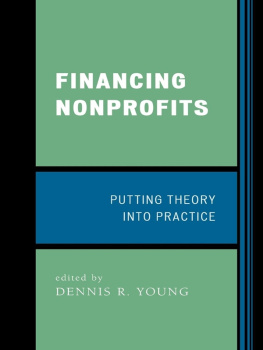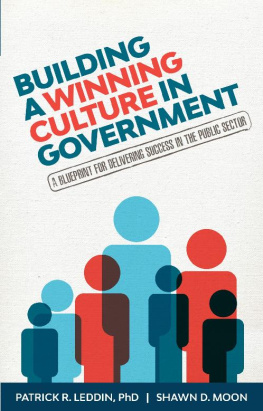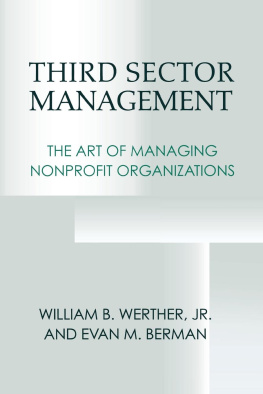PUBLIC SECTOR STRATEGY DESIGN
Within the public sector, strategies are not designed to influence markets, but instead to guide operations within a complex environment of multilateral power, influence, bargaining, and voting. In this book, authors David McNabb and Chung-Shingh Lee examine five frameworks public sector organization managers have followed when designing public sector strategies. Its purpose is to serve as a guide for managers and administrators of large and small public organizations and agencies. This book is the product of a combined more than 60 years of researching, teaching, and leading organizational seminars on the theory and practice of management applications in industrial, commercial, nonprofit, and public sector organizations.
The book consists of four parts: Strategic Management and Strategy Fundamentals; Frameworks for Designing Strategies; Public Sector Strategies; and Implementing Strategic Management. Throughout, the focus is on the widespread value of strategic management and adopting the strategy appropriate for the organization. Including chapters on game theory, competitive forces, resources-based view, dynamic capabilities, and network governance, the authors demonstrate ways that real managers of public sector and civil society organizations have put strategic management to work in their organizations. This book will be of interest to both practicing and aspiring public servants.
David E. McNabb is Professor Emeritus in the School of Business, Pacific Lutheran University, USA. He has taught undergraduate and graduate business management and public administration courses for Edmonds Community College, Olympic College, Oregon State University, the University of Maryland-University College (Europe), the American University in Bulgaria, the Stockholm School of Economics in Riga, Latvia, a regional business education program in Northern France, and the MPA program at Evergreen State College. He has worked for the cities of Fullerton, California and the Washington State House of Representatives. He is author of Research Methods for Public Administration and Non-Profit Organizations, 4th edition (Routledge, 2017).
Chung-Shing Lee is Professor and Dean of the School of Business at Saint Martins University, USA. Prior to his current position, he was a Professor of Technology and Innovation Management and Dean of the School of Business at Pacific Lutheran University, USA. Dr. Lee has been a visiting Professor in the College of Management and a Research Associate in the Institute of Knowledge Service and Innovation at Yuan Ze University in Taiwan, and a faculty research associate at the Center for Advanced Lifecycle Engineering (CALCE) at the University of Maryland. Dr. Lee is a member of the editorial boards of Technological Forecasting and Social Change, International Journal of Innovation and Technology Management, Journal of Competitive Studies, and the Competitiveness Review. Dr. Lee is the recipient of numerous teaching and research awards. He has been helping organizations design and implement innovation strategies for more than two decades.
In this book, David McNabb and Chung-Shing Lee provide a significant and valuable contribution to the body of knowledge in public sector strategy and management, as well as offering public administrators and practitioners a useful framework for them to design and implement strategy for sustainability and success.
Dr. Jonathan C. Ho, Yuan Ze University, Taiwan
Although the process of strategic management has been enthusiastically adopted by many public sector managers, the guidance on how best to develop the strategies necessary to put those processes into the task of running a government agency has been essentially missing. This book by David McNabb and Chung Shing-Lee appropriately fills that void. They have produced the only book I am aware of that blends strategic management theories with the practical skills needed for designing strategies.
Mohamad (Mo) Sepehri, University of the District of Columbia, Washington DC, USA
Modern public administration in todays complex and challenging environment is well-served by this important book on the core elements of strategic management. Its combination of theory and practical applications makes it a meaningful contribution to strategic planning for executives and administrators in all public organizations. Elected officials and leaders in the non-profit sector also need to understand the challenges their staffs and organizations are facing. After reading this book, their leadership will be more insightful and valuable.
Clare Petrich, President of the Port of Tacoma Commission, Washington, USA
First published 2021
by Routledge
52 Vanderbilt Avenue, New York, NY 10017
and by Routledge
2 Park Square, Milton Park, Abingdon, Oxon, OX14 4RN
Routledge is an imprint of the Taylor & Francis Group, an informa business
2021 Taylor & Francis
The right of David E. McNabb and Chung-Shing Lee to be identified as authors of this work has been asserted by them in accordance with sections 77 and 78 of the Copyright, Designs and Patents Act 1988.
All rights reserved. No part of this book may be reprinted or reproduced or utilized in any form or by any electronic, mechanical, or other means, now known or hereafter invented, including photocopying and recording, or in any information storage or retrieval system, without permission in writing from the publishers.
Trademark notice: Product or corporate names may be trademarks or registered trademarks, and are used only for identification and explanation without intent to infringe.
Library of Congress Cataloging-in-Publication Data
A catalog record for this title has been requested
ISBN: 978-0-367-55680-8 (hbk)
ISBN: 978-0-367-55677-8 (pbk)
ISBN: 978-1-000-19386-2 (ebk)
Typeset in Bembo
by Wearset Ltd, Boldon, Tyne and Wear
Public sector, nonprofit and civil society organizations globally face a daunting convergence of the challenges of increasing operating costs, limited and declining budgets, the need to replace failing infrastructure, find and replace qualified employees, improve the quality of their services, meet the needs of an increasing population. At the same time, they must invest huge sums in ever-changing technology as they plan for meeting the need for new and innovative services to their citizens. All this and more must be done while delivering reliable public services through a variety of new channels and media. As leaders in government continue planning for ways to overcome these challenges, public and civil society organizations are increasingly constrained by their limited budgets in what they can provide their citizens. They are constantly looking for new and better ways to put their resources and organizational capabilities to work.
Public sector managers and leaders of nonprofit organizations are seldom confronted with the need to develop strategies for dealing with competition. As Bozeman and Straussman warned:
By its very nature, public strategic management cannot and should not be as warlike as business strategy. Rarely is the quashing of a competitor an acceptable option. The external control of public organizations by political authorities ensures that warlike strategy will, in the long run, be self-defeating.











